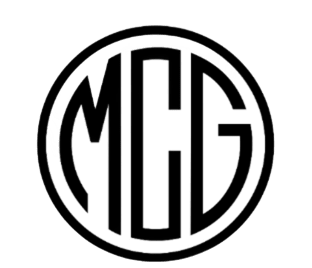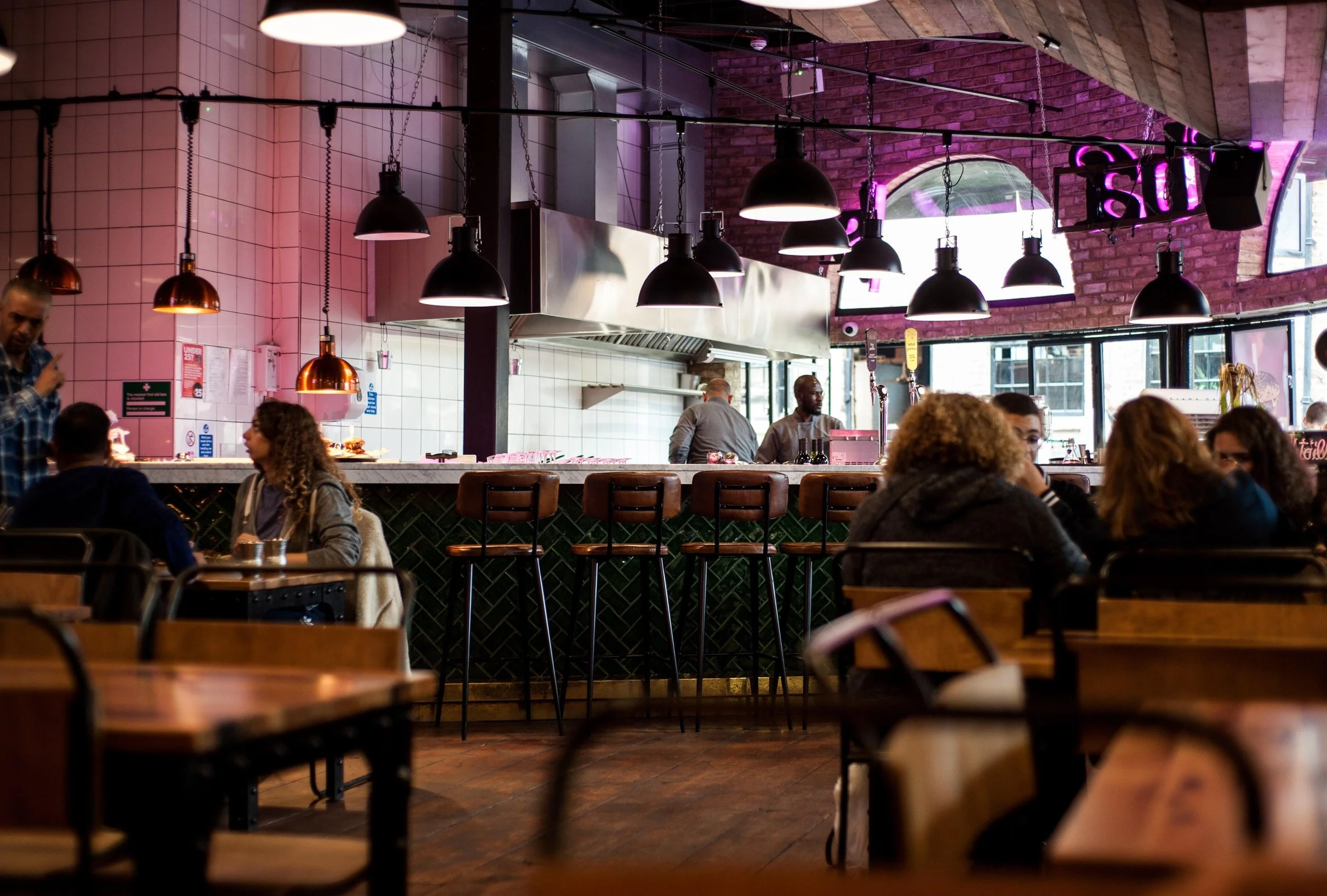Opening a Restaurant in Washington D.C.: A Complete Guide to Permits and Licenses
A Restaurateur's Journey Through the District's Regulatory Maze
After successfully operating restaurants in three other cities, I thought I understood the permitting process. Then I decided to open my dream restaurant in Washington D.C. What I discovered was a complex but navigable system that, once understood, actually provides excellent protection for both business owners and customers. Here's everything I learned about securing the permits and licenses needed to open a restaurant in the nation's capital.
Understanding the D.C. Restaurant Permitting Landscape
Opening a restaurant in Washington D.C. requires coordination with multiple agencies, each with specific requirements and timelines. The key to success is understanding that these aren't just bureaucratic hurdles—they're essential steps that ensure your restaurant operates safely, legally, and successfully from day one.
The process typically takes 4-8 months from start to finish, depending on your location, concept, and whether you're serving alcohol. I learned quickly that starting early and staying organized are absolutely critical to meeting your planned opening date.
Phase 1: Business Foundation and Zoning (Weeks 1-4)
Business Registration and Licensing
Before diving into restaurant-specific permits, you need to establish your business legally in D.C.
Basic Business License: Start with the Department of Consumer and Regulatory Affairs (DCRA) for your basic business license. This costs $70 for most restaurant operations and can be completed online at dcra.dc.gov. You'll need your business structure documents (LLC, corporation, etc.) and a registered agent in D.C.
Certificate of Clean Hands: This verifies you don't owe money to D.C. government. It's free and required for most other permits. Apply online through the Office of Tax and Revenue.
Zoning Verification and Approval
Zoning Permit: Contact the D.C. Office of Planning to verify your location can legally operate as a restaurant. This seems obvious, but zoning restrictions can be complex, especially in residential areas or historic districts.
Cost: $100-$500 depending on complexity
Timeline: 2-4 weeks for standard locations
Required Documents: Lease agreement, floor plans, business description
Special Considerations: If you're in a historic district (and many prime D.C. locations are), you'll also need Historic Preservation Review Board approval for any exterior changes, including signage. Start this process immediately—it can take 2-4 months.
Phase 2: Health Department and Food Service Permits (Weeks 2-8)
D.C. Department of Health Requirements
The Department of Health oversees all food service operations, and their requirements are comprehensive.
Food Service Establishment License: This is your primary operating permit for serving food.
Cost: $280 for restaurants under 3,000 sq ft, $560 for larger establishments
Timeline: 4-6 weeks after complete application
Requirements:
Completed application with detailed floor plans
Equipment specifications and layout
Menu and food handling procedures
Proof of manager food safety certification
Manager Food Protection Certification: At least one manager must complete an approved food safety course. I recommend ServSafe, which is widely recognized and costs about $150.
Food Handler's Permits: All employees handling food need permits ($10 each). Plan for this ongoing expense as you hire staff.
Kitchen and Equipment Approval
The Health Department must approve your kitchen design before construction and inspect the completed kitchen before opening.
Plan Review: Submit detailed kitchen plans showing equipment placement, ventilation, plumbing, and workflow. The review focuses on food safety, proper temperatures, and contamination prevention.
Pre-Opening Inspection: Schedule this once construction is complete but before you receive food deliveries. The inspector will verify everything matches approved plans and meets health codes.
Pro Tip: Build relationships with Health Department staff early. They're knowledgeable and helpful when you approach them as partners in food safety rather than obstacles to overcome.
Phase 3: Building and Construction Permits (Weeks 1-12)
Department of Buildings (DOB) Requirements
Most restaurant openings involve some construction or renovation, requiring DOB permits.
Building Permit: Required for any structural changes, new construction, or significant renovations.
Cost: Varies widely ($500-$5,000+ depending on scope)
Timeline: 4-8 weeks for review, plus construction time
Requirements: Architectural plans, structural engineering (if needed), contractor information
Electrical Permit: Restaurant kitchens require significant electrical work for equipment, lighting, and safety systems.
Plumbing Permit: Necessary for kitchen equipment, restrooms, and grease trap installations.
Mechanical Permit: Covers HVAC systems, which are crucial for kitchen ventilation and dining comfort.
Fire Department Approval
D.C. Fire and Emergency Medical Services must approve your fire safety systems.
Fire Safety Plan: Required for restaurants over certain sizes or with complex layouts. Includes evacuation procedures and emergency contact information.
Fire Suppression System: Commercial kitchens need approved fire suppression systems over cooking equipment. This requires specialized contractors and can cost $5,000-$15,000.
Phase 4: Alcoholic Beverage Licensing (Weeks 8-20)
If you plan to serve alcohol, the Alcoholic Beverage Regulation Administration (ABRA) process is complex and time-consuming.
License Types and Costs
Retailer's License Class C/R (Restaurant): Allows beer, wine, and spirits with food service.
Cost: $7,500 application fee plus $2,500 annual fee
Requirements: Food sales must comprise at least 45% of total revenue
Retailer's License Class C/T (Tavern): For establishments focusing primarily on alcohol sales.
Cost: $7,500 application fee plus $2,500 annual fee
ABRA Application Process
Initial Application: Extremely detailed, requiring business plans, financial statements, floor plans, and personal background information for all principals.
Community Notification: ABRA notifies the community about your application. Neighbors have 45 days to file protests, which can significantly delay approval.
Settlement Agreements: Many successful applicants negotiate voluntary agreements with Advisory Neighborhood Commissions (ANCs) addressing concerns about hours, noise, and community impact.
Board Hearing: If there are protests or concerns, you may need to appear before the ABRA board. Having legal representation experienced in D.C. liquor law is highly recommended.
Timeline Reality Check: Plan for 4-6 months minimum for liquor licenses. Protests or complications can extend this to 8-12 months.
Phase 5: Additional Permits and Final Approvals (Weeks 4-16)
Public Space and Signage
Public Space Permit: Required for outdoor seating, sidewalk cafes, or any use of public space. Apply through the Department of Transportation (DDOT).
Cost: $0.75 per square foot annually for sidewalk cafes
Timeline: 6-8 weeks
Requirements: Detailed plans, insurance, ANC support recommended
Sign Permits: All exterior signage requires permits. Historic districts have additional restrictions.
Environmental and Utility Considerations
Grease Trap Permit: Required for commercial kitchens. DC Water oversees this process.
Stormwater Management: May be required for new construction or significant renovations.
Utility Connections: Coordinate with Pepco (electric) and Washington Gas early. Restaurant electrical and gas demands often require service upgrades.
Best Practices and Lessons Learned
Start Early and Plan Sequentially
Begin the permitting process 6-8 months before your planned opening. Some permits depend on others—for example, you can't get final health department approval until construction is complete.
Hire Experienced Professionals
Permit Expediter: Consider hiring someone who specializes in D.C. restaurant permits. The cost ($3,000-$8,000) is often justified by time savings and reduced errors.
Attorney: Essential for liquor licenses and complex zoning issues. D.C. has attorneys who specialize in restaurant law.
Architect/Designer: Use professionals familiar with D.C. health and building codes. Their experience prevents costly design changes during review.
Build Community Relationships
Advisory Neighborhood Commission (ANC): Introduce yourself early and address concerns proactively. ANC support can be crucial for liquor licenses and public space permits.
Neighbors: Consider hosting a community meeting to discuss your plans and address concerns before formal applications.
Maintain Detailed Records
Keep comprehensive files of all applications, correspondence, and approvals. D.C.'s permit system requires extensive documentation, and you'll reference these materials throughout the process.
Budget for the Process
Beyond permit fees, budget for:
Professional services (attorney, expediter, architect)
Multiple plan revisions
Potential delays in opening timeline
Carrying costs during the permitting process
Plan for $15,000-$30,000 in total permitting costs for a typical restaurant, more if you're serving alcohol or in a historic district.
Timeline Management and Realistic Expectations
Typical Timeline Breakdown
Months 1-2: Business registration, zoning verification, initial applications
Months 2-4: Health department plan review, building permits, construction begins
Months 3-6: ABRA process (if applicable), construction continues
Months 4-6: Final inspections, certificate of occupancy, staff training
Month 6+: Soft opening and full operations
Factors That Can Extend Timelines
Historic district requirements
Community opposition to liquor licenses
Complex construction or zoning issues
Incomplete applications requiring resubmission
Seasonal variations in review times
Final Thoughts: The Investment in Success
While D.C.'s restaurant permitting process is complex and time-consuming, it's also thorough and fair. The requirements exist to protect public health, ensure fair business practices, and maintain community standards. By understanding the process, starting early, and working with experienced professionals, you can navigate it successfully.
My restaurant opened exactly eight months after I started the permitting process. The investment in proper permits and licenses has paid dividends in smooth operations, community support, and peace of mind knowing we're fully compliant with all regulations.
Remember, permits aren't just legal requirements—they're the foundation of a successful restaurant operation. Take the time to do them right, and you'll be rewarded with a business that's built to last in one of America's most dynamic dining markets.
The key is patience, preparation, and persistence. Washington D.C. offers incredible opportunities for restaurateurs willing to navigate its regulatory requirements properly. With the right approach, your restaurant can become part of the rich culinary landscape that makes the District such a special place to dine.


